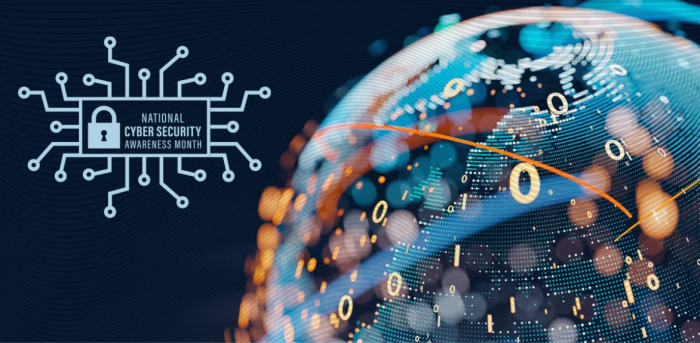In the realm of cybersecurity, legal issues hold immense significance, influencing the way organizations safeguard sensitive data and navigate the ever-evolving digital landscape. Embarking on a journey titled “Legal Issues in Information Security – C841,” this discourse delves into the intricate legal implications and ethical considerations surrounding information security, providing a comprehensive understanding for professionals and organizations alike.
This discourse explores the legal liability associated with information security breaches, examining real-world cases and the obligations organizations have to protect personal data. It sheds light on data privacy laws and regulations worldwide, highlighting their impact on data handling and the consequences of non-compliance.
Additionally, it delves into intellectual property rights in information security, discussing legal issues related to the development and distribution of security technologies and solutions.
Legal Liability in Information Security Breaches: Legal Issues In Information Security – C841

Information security breaches can have significant legal implications for organizations. They can lead to lawsuits, fines, and reputational damage.
In the United States, organizations are subject to a variety of laws that protect personal information, including the Health Insurance Portability and Accountability Act (HIPAA), the Gramm-Leach-Bliley Act (GLBA), and the Sarbanes-Oxley Act (SOX). These laws impose strict requirements on organizations to protect the privacy and security of personal information.
Organizations that fail to comply with these laws can face significant legal penalties. For example, in 2015, Anthem, Inc. was fined $16 million for violating HIPAA after a data breach that exposed the personal information of 78 million people.
Legal Obligations of Organizations to Protect Personal Information
Organizations have a legal obligation to protect the personal information of their customers, employees, and other stakeholders. This obligation includes:
- Taking reasonable steps to prevent unauthorized access to personal information
- Storing personal information securely
- Disposing of personal information properly
- Providing notice to individuals whose personal information has been breached
- Cooperating with law enforcement investigations
Data Privacy Laws and Regulations
Data privacy laws and regulations are designed to protect the privacy of individuals by regulating the collection, use, and storage of personal information.
The most comprehensive data privacy law in the world is the European Union’s General Data Protection Regulation (GDPR). The GDPR imposes strict requirements on organizations that process the personal information of EU residents, including:
- Obtaining consent from individuals before collecting their personal information
- Providing individuals with access to their personal information
- Allowing individuals to correct or delete their personal information
- Notifying individuals of data breaches
- Appointing a data protection officer
Other major data privacy laws and regulations include:
- The California Consumer Privacy Act (CCPA)
- The Health Insurance Portability and Accountability Act (HIPAA)
- The Gramm-Leach-Bliley Act (GLBA)
- The Sarbanes-Oxley Act (SOX)
Intellectual Property Rights in Information Security
Information security technologies and solutions are often protected by intellectual property rights, such as patents, copyrights, and trademarks.
Patents protect the inventions of new and useful products and processes. Copyrights protect the original works of authorship, such as software code and documentation. Trademarks protect the names and logos of products and services.
Organizations that develop, use, or distribute information security technologies and solutions must be aware of the intellectual property rights of others. Infringing on the intellectual property rights of others can lead to lawsuits and other legal consequences.
Legal Issues Related to the Development, Use, and Distribution of Information Security Software and Hardware
Organizations that develop, use, or distribute information security software and hardware must be aware of the following legal issues:
- Patent infringement
- Copyright infringement
- Trademark infringement
- Trade secret misappropriation
- Unfair competition
Ethical Considerations in Information Security
Information security professionals have a responsibility to act ethically. This includes:
- Protecting the privacy of individuals
- Safeguarding the confidentiality of information
- Ensuring the integrity of data
- Avoiding conflicts of interest
- Reporting illegal or unethical activities
Legal and Ethical Obligations of Information Security Professionals, Legal issues in information security – c841
Information security professionals have a legal and ethical obligation to protect the information assets of their organizations. This includes:
- Complying with all applicable laws and regulations
- Implementing and maintaining effective information security controls
- Educating employees about information security risks
- Responding to information security incidents
- Cooperating with law enforcement investigations
Legal Issues in Cloud Computing and Cybersecurity
Cloud computing and cybersecurity are two rapidly growing areas of technology. However, they also present a number of legal challenges.
One of the biggest legal challenges in cloud computing is the issue of data privacy. When organizations store their data in the cloud, they are essentially giving up control of that data to a third party. This can raise concerns about the security and privacy of the data.
Another legal challenge in cloud computing is the issue of liability. In the event of a data breach, who is liable? The cloud provider? The organization that stored the data? Or both?
Legal Implications of Data Breaches in Cloud Environments
Data breaches in cloud environments can have serious legal consequences. Organizations that store their data in the cloud may be liable for:
- Violating data privacy laws
- Breaching their contracts with customers
- Damaging their reputation
General Inquiries
What are the key legal obligations organizations have regarding information security?
Organizations are legally obligated to implement reasonable security measures to protect personal data, prevent unauthorized access, and comply with applicable data privacy laws and regulations.
How do data privacy laws impact the collection and use of personal data?
Data privacy laws establish specific requirements for organizations to obtain consent, disclose data usage purposes, and provide individuals with rights to access, rectify, and erase their personal data.
What are the legal consequences of violating intellectual property rights in information security?
Violating intellectual property rights can result in civil lawsuits, injunctions, and damages, hindering the development and innovation of information security solutions.